What is Sleep Apnea? – Guilderland, NY
Get the Information You Need for Better Sleep
It is estimated that over 18 million people are affected by sleep apnea in the US alone, making it one of the most common sleep conditions. However, it’s also estimated that around 80% of the cases go untreated because it occurs at night. If you’re wondering about what sleep apnea is and how to recognize it, you’re in the right place. Dr. Oshins wants to make it easy for his patients to have access to important health and sleeping information. Read on to learn more about what exactly sleep apnea is as well as some additional facts about this common condition.
What is Sleep Apnea?

Sleep apnea occurs when a person experiences interrupted breathing during sleep. There are different types of sleep apnea, but the most common is called obstructive sleep apnea (OSA), which is the type that we treat at our office. This happens when the throat and/or tongue muscles relax so much that it partially blocks your airway, causing cessations in breathing. The problem is that this interrupted breathing can happen sometimes hundreds of times at night, leading to difficulty sleeping.
Another type of sleep apnea is called central sleep apnea (CSA), which is a neurological condition where the brain can’t communicate with the body properly. Essentially, the brain stops sending your body the signal to breathe during sleep. There is also a third type of sleep apnea called complex sleep apnea, which is a combination of OSA and CSA.
Common Warning Signs of Sleep Apnea
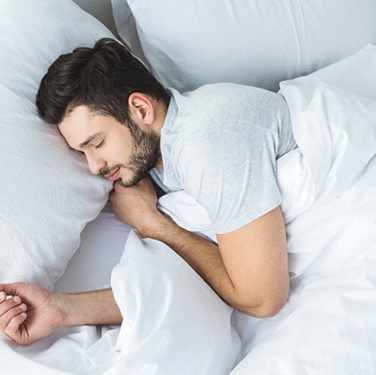
Sleep apnea is often undiagnosed or misdiagnosed as a different condition, which is why it’s important to be able to recognize these common symptoms:
- Excessive daytime drowsiness
- Loud snoring
- Waking up gasping for breath
- Morning headaches
- Sore throat and dry mouth
- Difficulty concentrating
- Depression or mood swings
- Weight gain
- Impotence
If you notice any of these warning signs, contact us to request an appointment right away!
Interesting Sleep/Sleep Apnea Facts
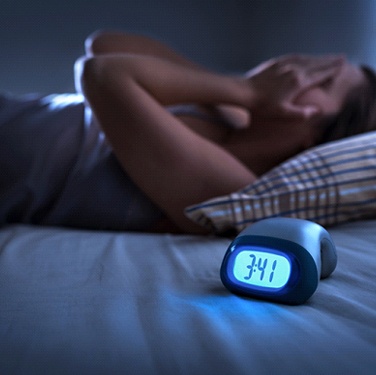
- In general, doctors believe that the average healthy adult should get between 7 and 9 hours of sleep each night to feel well rested.
- Chronic sleep deprivation can cause memory loss because it prevents the brain from being able to organize the information you consumed at the end of the day.
- Sleep apnea can make it more difficult to lose weight and keep it off.
- Many people who are affected by sleep apnea mistake it for insomnia because of their inability to sleep. In reality, they’re being woken by the breathing cessations.
- While snoring is one of the most common signs of sleep apnea, not all people who snore suffer from the condition.
- Multiple studies show that driving while drowsy is actually more dangerous than driving while intoxicated.
- Nighttime teeth grinding (bruxism) can also be a sign of sleep apnea.
- A larger neck circumference will increase your risk of sleep apnea.
Understanding the Cost of Sleep Apnea Treatment
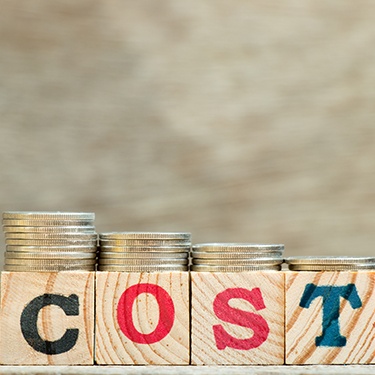
Sleep apnea takes a toll on your quality of life and can lead to many consequences. That’s why it’s so important to seek a diagnosis and get the treatment that you need to achieve high-quality rest. However, many patients avoid getting treatment because they are worried about the cost. During your consultation with us, we will discuss the financial aspects of your treatment in detail. Until then, here are some things to take into consideration.
Does Dental Insurance Cover the Cost of Sleep Apnea Treatment?

Dental insurance doesn’t usually cover the cost of sleep apnea treatment. This is because insurance companies don’t consider diagnosing and treating sleep apnea to be under the umbrella of dentistry. If you have questions regarding your insurance plan and what it covers, one of our friendly team members will be able to assist you.
Factors That Affect the Cost of Sleep Apnea Treatment
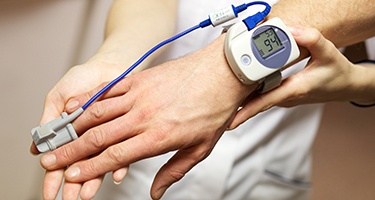
There are two main factors that contribute to the cost of sleep apnea treatment: severity and treatment type. If you have a mild case of sleep apnea, you may be able to see necessary relief through lifestyle adjustments and not require any advanced treatments. If you have mild to moderate sleep apnea, oral appliance therapy is likely an ideal option. For severe sleep apnea, you might require more advanced treatment methods, which can cost more. Oral appliance therapy is generally more cost effective than other treatment options, like CPAP therapy.
Treat Your Sleep Apnea Now to Improve Your Health
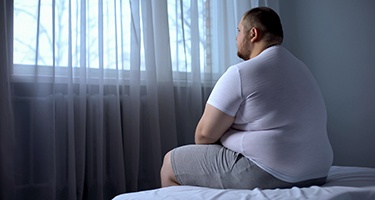
Many patients contemplate whether it is worth it to seek a sleep apnea diagnosis and treatment. Whether or not you have health insurance that covers treatment, you can be confident that seeking treatment is in your best interest. It can easily benefit your health and reduce your long-term expenses. Sleep apnea increases health risks, including some that are serious and life threatening, like stroke, heart disease, diabetes, hypertension, depression, weight gain, and more. These issues will eventually result in high medical bills and a lower quality of life.
Making Sleep Apnea Treatment More Affordable

Sleep apnea treatment isn’t covered by dental insurance, but this doesn’t mean that you are completely out of luck. We are happy to accept payments through CareCredit – a third-party financing company that can split the cost of your treatment into manageable monthly installments with little to no interest. If you need help applying or have any questions, don’t hesitate to reach out!
